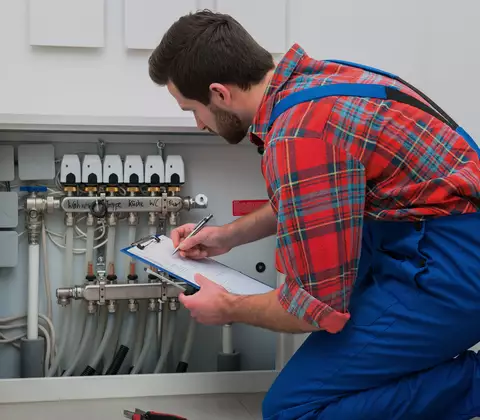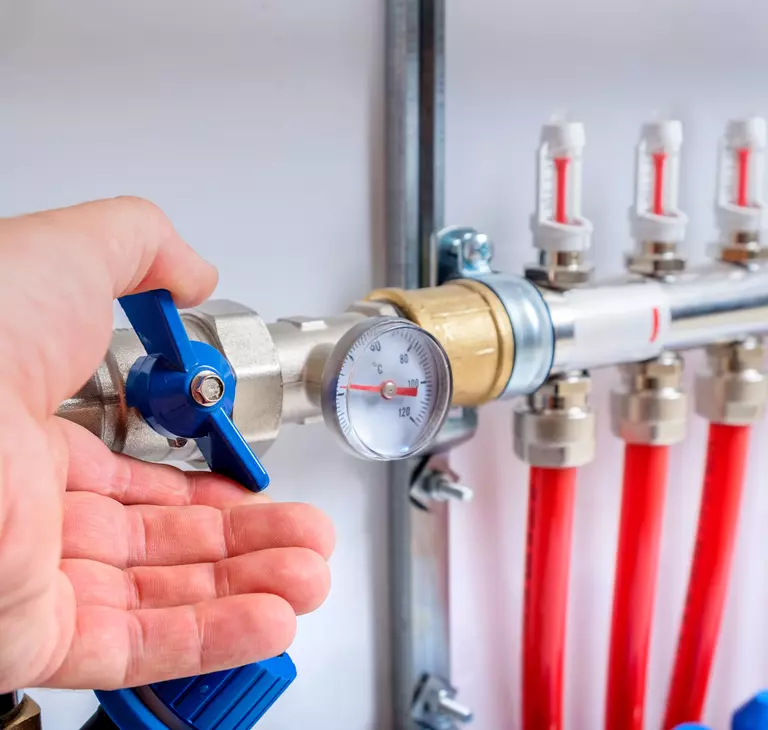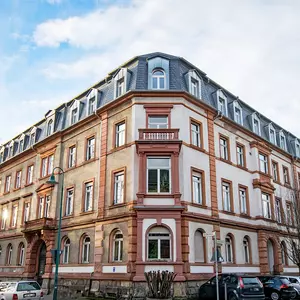
Renovating heating systems
– What you need to know
Heating bills form a substantial proportion of the operating costs of a house, particularly in homes where old oil or gas heating systems are in use. So is it worth renovating the heating system? And, if so, under what conditions? Are any government subsidies available? You will find the answers to these questions in the following article.
Reduce the cost of heating with these simple measures
According to experts, around 180 TWh (terawatt hours) of heating energy are lost every year due to poorly renovated buildings and heating systems. This produces 45 million tonnes of CO2 emissions. The lack of renovation not only pollutes the environment, it also puts a strain on your budget.
In 2018, heating a 70 m² apartment cost an average of €700. But you can lower your heating costs by implementing some relatively minor changes. These include replacing your old-fashioned boiler with a modern variant that employs condensing technology, installing thermostatic valves or having your heating system hydronically balanced.
These inexpensive measures will pay for themselves very quickly. Moreover, you will have a clear conscience because you are reducing your CO2 footprint and protecting the environment.
This is also the goal of the federal government, who introduced their climate change package with aim of reducing CO2 emissions by 2030.
When is it worth renovating a heating system?
If your heating is 15 years old, you should certainly consider renovating your heating system. Higher-than-average heating costs are another sign that your heating is no longer working at maximum efficiency. At this point, you should certainly consult an expert.

The benefits of renovating your heating system
Reasons why renovating your heating system is worthwhile
Reduces heating costs: even simple measures can lower the cost of heating. The greatest savings can be made if you completely replace an old heating system with modern equipment.
Less susceptible to price fluctuations: the price of fossil fuels can fluctuate substantially. The less dependent you are on these, the better.
Protects the environment: if you burn fewer fossil fuels, you reduce your impact on the environment.
Improves reliability: a 15-year-old boiler is considered to be technically obsolete. Naturally, it cannot work as reliably as a modern boiler. Furthermore, old systems need more maintenance and repairs.
Improves convenience: modern heating systems with digital control modules give you the option of controlling room temperatures using your smartphone, for example.
The various aspects of heating system renovation
Adjust the heating curve
The heating curve defines the flow temperature required at a given outdoor temperature. If it is set too steeply, energy is wasted in generating an unnecessarily high flow temperature.
Heating technicians can adjust the curve precisely to suit your heating requirements, which can lower your heating bills. This is also a relatively cheap measure as you only pay the technician for their time and no material costs are incurred.
Install thermostatic valves
Thermostatic valves control the water flow rate in the heating system depending on the desired room temperature. They also limit the maximum flow rate. This saves you money.
Lag heating pipes
Uninsulated heating pipes lose heat. This is especially true of piping that runs through unheated rooms. Therefore, you should ensure that these are insulated with sufficient lagging.
Replace the circulation pump
Are you still using an old, fixed-speed heating pump? Then replace it with a variable-speed pump. A fixed-speed pump has an unchanging output regardless of the actual heating requirements.
This is wasteful. Variable-speed pumps can save you up to two thirds of the power consumed by the pump.
Have the system hydronically balanced
Setting the correct pressure and flow rate in the heating pipes ensures that every radiator is supplied with the perfect amount of heating water to achieve the desired room temperature.
Without hydronic balancing, some rooms are often overheated while barely any heat reaches others.
Replace the boiler
Modern oil or gas condensing boilers are considerably more effective than the old standard boilers. When renovating your heating system, replace your boiler to avoid excessive heating costs.
Convert to renewable energies
Renewable energies are the future of heating. If you opt for one of the following systems, the environment will thank you and so will the state, by offering you attractive subsidies.
Heat pumps
Heat pumps draw heat from the surrounding air, ground or groundwater, boost this temperature and use it to heat a building and/or for DHW heating.
Heat pumps only consume electrical power to run a compressor. Ideally, you could produce this power on site using a photovoltaic system.
Solar thermal technology
Solar thermal technology uses solar radiation to heat water in collectors. The heat generated in this way is fed into the heating and hot water circuit. Your heating system can even achieve energy efficiency class A+ if you integrate WOLF solar heating equipment into your heating system.
Hybrid heating systems
As heat pumps and solar thermal technology usually cannot produce enough heat for older buildings, they can be combined, for example, with gas condensing boilers.


